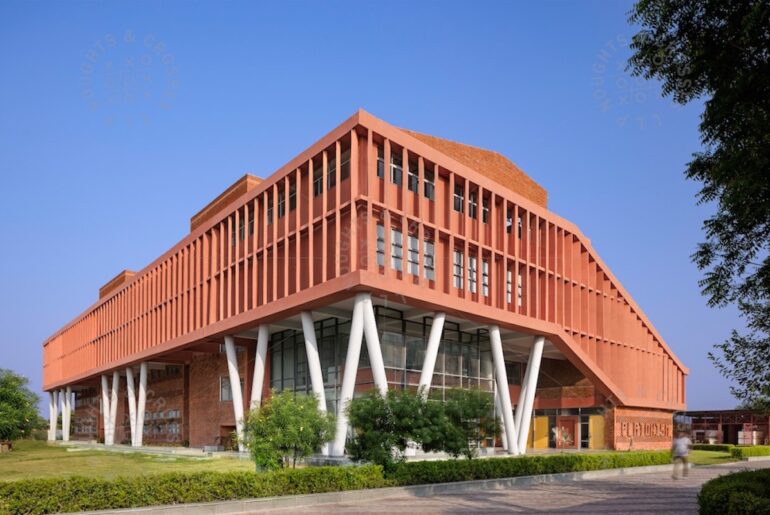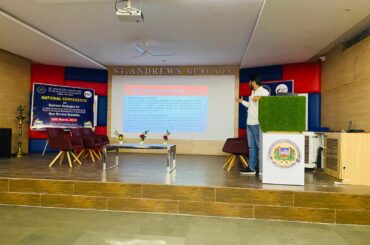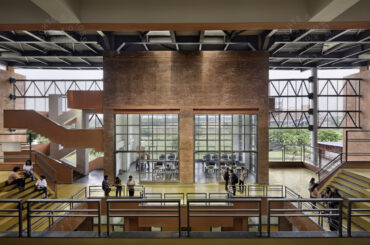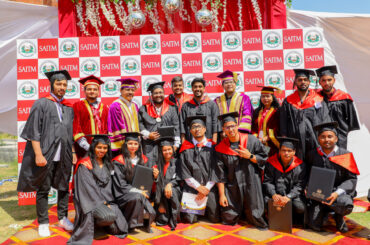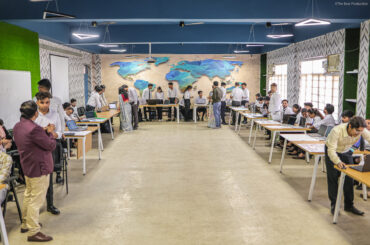BE and BTech difference
The BE and BTech difference primarily lies in their approach to engineering education. BE is more theoretical, delving deep into engineering principles, whereas BTech is application-oriented, focusing on practical techniques. Both degrees prepare students for engineering careers, with subtle distinctions in curriculum and teaching methods.
Some of the most opted courses in India and St. Andrews college or different Engineering college or Management colleges are as follows:-
Introduction to BE and BTech Degrees

Bachelor of Engineering (BE)
Overview
BE is an undergraduate degree typically spanning four years, focusing on the fundamental principles and applications of engineering. It combines theoretical concepts with practical applications to prepare students for various engineering roles.
Curriculum:
The BE curriculum emphasizes in-depth theoretical knowledge in subjects like mathematics, physics, and engineering fundamentals. It includes core courses, electives, and project work, with a strong focus on developing analytical and problem-solving skills.
Specializations
BE programs offer a range of specializations such as Civil, Mechanical, Electrical, Electronics, and Computer Engineering, allowing students to tailor their education to specific interests and career paths.
Bachelor of Technology (BTech)
Overview
B Tech degree, or Bachelor of Technology, is a four-year undergraduate program designed to equip students with practical skills and technical knowledge for the engineering profession. It focuses on industry-oriented training and hands-on experience.
Curriculum
The BTech curriculum is more application-oriented compared to BE, incorporating practical labs, industry projects, and internships. It aims to prepare students for immediate employment by providing relevant technical skills and knowledge.
Specializations
BTech offers various specializations, including Information Technology, Electronics and Communication, Chemical Engineering, and more, catering to diverse technological fields and industry needs.
Comparison
Approach
BE programs often have a more theoretical and research-oriented approach, imparting theoretical knowledge, while BTech programs emphasize practical skills and industry readiness.
Curriculum Structure
BE programs typically focus on a strong theoretical foundation with extensive coursework, whereas BTech programs integrate practical training, labs, and industry exposure.
Understanding BE (Bachelor of Engineering)
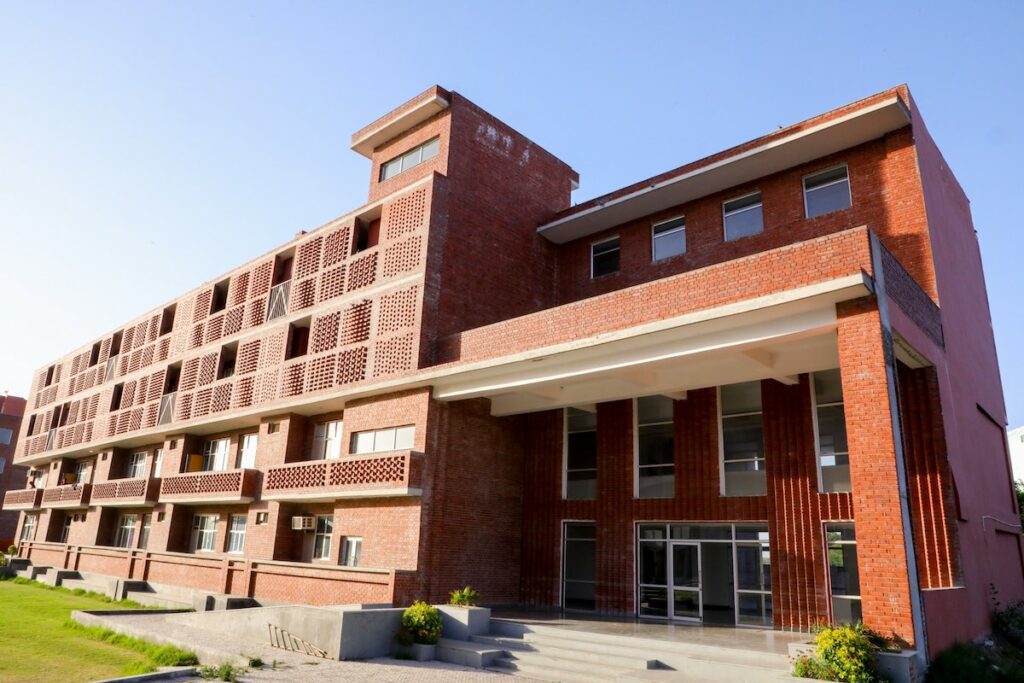
Definition
Bachelor of Engineering (BE) is an undergraduate degree awarded to students who complete a program focused on engineering disciplines. It typically involves the study of both theoretical concepts and practical applications in various branches of engineering.
Duration;
The BE degree usually spans 4 years of full-time study, divided into eight semesters. Some programs may offer part-time or extended options, depending on the institution.
Curriculum
Core Subjects
The curriculum generally includes foundational subjects in mathematics, physics, and chemistry, along with core engineering courses related to the specific branch of engineering (e.g., Mechanical, Civil, Electrical). Many engineering and technology courses at the undergraduate level share similarities in their syllabus, following standards set by recognized educational bodies in India.
Specializations
Students may choose from various specializations or streams such as Computer Science, Electronics, Civil, Mechanical, Chemical, and more, depending on their interests and career goals.
Practical Training
The program includes laboratory work, project assignments, and industrial training to provide hands-on experience and apply theoretical knowledge in real-world scenarios.
Career Prospects:
Job Opportunities
Graduates with a BE degree can pursue careers in various sectors, including technology, manufacturing, construction, energy, and consulting. Job roles may include engineers, analysts, consultants, and project managers.
Higher Studies
BE graduates may also opt for further studies, such as pursuing a Master’s degree (ME/MTech) or MBA, to enhance their expertise and career prospects.
Accreditation and Recognition
Accreditation
BE programs are accredited by relevant engineering bodies and institutions, which ensures that the curriculum meets industry standards and provides quality education. Various engineering colleges offer similar syllabi aligned with accreditation standards.
Recognition
The degree is recognized globally and can open doors to international career opportunities and further educational pursuits.
Skill Development
Technical Skills
The program emphasizes the development of technical skills related to engineering design, problem-solving, and system analysis.
Soft Skills
Communication, teamwork, project management, and critical thinking skills are also fostered to prepare students for professional environments.
Admission Requirements:
Eligibility
Admission typically requires a high school diploma with a focus on science subjects, along with entrance exams specific to engineering (e.g., JEE Main, JEE Advanced in India).
Importance
Foundation for Innovation
A BE degree provides a solid foundation in engineering principles, enabling graduates to contribute to technological advancements and innovations.
Industry Relevance
The program prepares students for the demands of the engineering industry, equipping them with the skills and knowledge needed to address complex engineering challenges.
Understanding BTech (Bachelor of Technology)
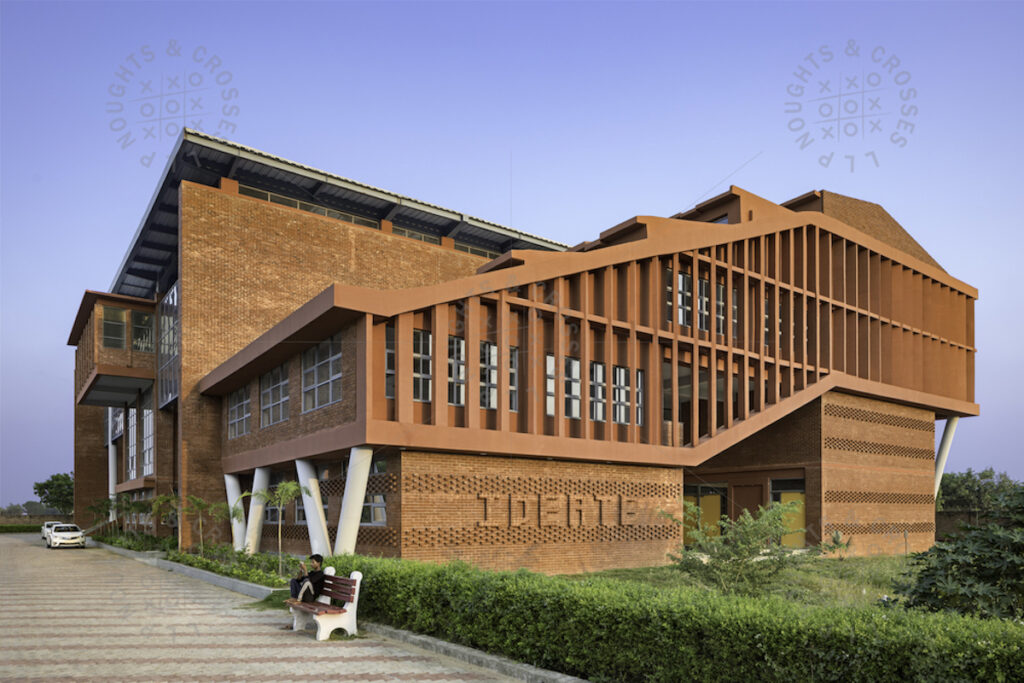
Definition:
Bachelor of Technology (BTech) is an undergraduate degree focused on technical and engineering disciplines. It emphasizes practical application and hands-on experience in various branches of technology and engineering.
What is B Tech? B Tech, or Bachelor of Technology, is a degree that covers admissions, eligibility, specializations, and career options, including opportunities in prestigious institutions like IITs and various career paths after graduation.
Duration
Typically, the BTech course lasts for 4 years of full-time study, divided into eight semesters. Some institutions may offer part-time or extended options.
Curriculum;
Core Subjects
The curriculum includes fundamental courses in mathematics, science, and engineering principles, as well as specialized courses related to the chosen field, such as Computer Science, Electronics, Civil Engineering, etc.
Specializations
Students can opt for specializations or elective subjects based on their interests and career goals, such as Artificial Intelligence, Data Science, Robotics, etc.
Practical Training
The program includes lab work, project assignments, internships, and industrial training to provide practical experience and apply theoretical knowledge in real-world settings.
Career Prospects
Job Opportunities
BTech graduates can pursue careers in various sectors, including technology, manufacturing, construction, IT, and consulting. Common job roles include engineers, developers, analysts, and project managers.
Higher Studies
Graduates may choose to further their education with a Master’s degree (MTech, ME), an MBA, or other advanced certifications to enhance their career prospects and expertise.
Accreditation and Recognition:
Accreditation
Tech programs are accredited by relevant educational and engineering bodies, ensuring that they meet industry standards and provide quality education.
Recognition
The degree is widely recognized and respected both nationally and internationally, facilitating global career opportunities and further educational pursuits.
Skill Development:
Technical Skills
The program focuses on developing technical skills related to design, analysis, and problem-solving in various engineering and technology fields.
Soft Skills
Emphasis is also placed on communication, teamwork, project management, and critical thinking to prepare students for professional roles in diverse environments.
Admission Requirements
Eligibility
Admission typically requires a high school diploma with a focus on science and mathematics, along with entrance exams specific to technology and engineering (e.g., JEE Main, JEE Advanced in India).
Importance:
Foundation for Innovation
A BTech degree provides a strong foundation in technical and engineering principles, enabling graduates to contribute to technological advancements and innovations.
Industry Relevance
The program is designed to address industry demands, equipping students with the skills and knowledge necessary to tackle complex technological challenges and excel in their careers.
Key Differences Between BE and BTech
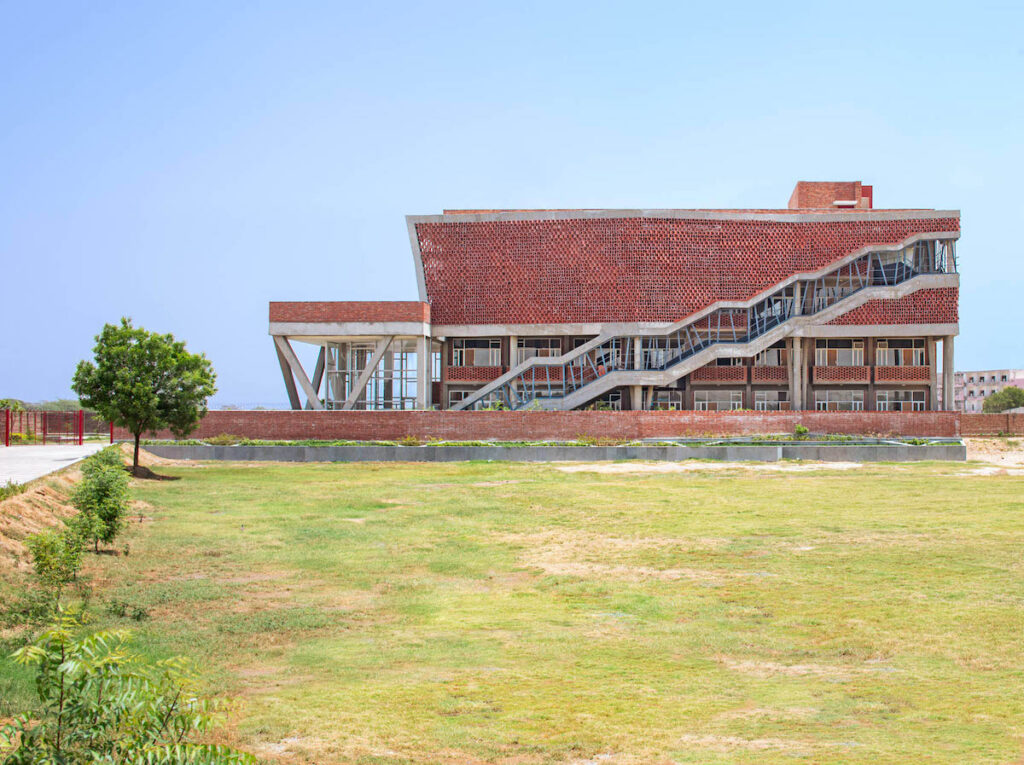
Focus and Approach
BE (Bachelor of Engineering)
Primarily focuses on theoretical concepts and engineering principles. It emphasizes a deep understanding of fundamental theories and often includes a strong emphasis on research and development.
BTech (Bachelor of Technology)
Emphasizes practical application and hands-on experience. The curriculum is designed to impart technical skills and practical knowledge that can be directly applied in industrial and technological contexts.
Curriculum and Pedagogy
BE
The curriculum often includes more theoretical coursework, foundational subjects, and research-oriented projects. It tends to be more focused on understanding the principles and underlying theories of engineering.
BTech
The curriculum is more application-oriented, with a significant focus on practical training, lab work, and industry-relevant projects. It includes more practical and technical subjects tailored to current industry needs.
Duration and Structure
BE
Generally spans 4 years, but the focus may be more on theoretical aspects. The structure may include a balanced mix of theory and practical components.
BTech
Typically also lasts 4 years, with a strong emphasis on practical training, industry internships, and project work. The structure is designed to align closely with industry standards and technological advancements.
Industry Alignment
BE
While BE degrees are recognized and respected, they may not always focus on current industry practices. They are often more research-oriented and may include theoretical research components.
BTech
BTech courses are designed to align closely with industry requirements, incorporating current technologies, industry trends, and practical skills necessary for immediate application in the workforce.
Specializations and Electives
BE
May offer a range of specializations, but the emphasis is on theoretical aspects of those fields. Specializations might focus more on the theoretical understanding of complex concepts.
BTech
Offers a wide range of specializations with a strong focus on practical skills and industry-relevant technologies. Elective subjects often include contemporary technologies and emerging fields.
Research and Development
BE
Often includes components of research and development as part of the curriculum, encouraging students to explore theoretical research and contribute to academic advancements.
BTech
Focuses more on practical problem-solving and real-world applications. Research components may be included, but the emphasis is generally on practical implementation and industry projects.
Career Prospects;
BE
Graduates may pursue careers in various engineering fields, often involving roles that require a deep understanding of theoretical concepts and advanced research.
BTech
Graduates are often prepared for immediate industry roles, with practical skills and experience making them suitable for technical and engineering positions in various sectors.
Educational Institutions
BE
Offered by a range of universities and engineering colleges, with varying focuses depending on the institution.
BTech
Provided by many technical institutes and universities, often with a strong emphasis on industry relevance and practical training.
Be and Btech Difference in Syllabus

Theoretical vs. Practical Focus
BE (Bachelor of Engineering)
The syllabus often leans towards a theoretical approach. It includes fundamental engineering principles, mathematical theories, and advanced scientific concepts. The coursework may emphasize understanding core theories, equations, and fundamental research methodologies.
Core Subjects
Advanced mathematics, engineering mechanics, material science, thermodynamics, fluid mechanics.
Additional Focus
Research-oriented topics, theoretical studies, and in-depth understanding of scientific concepts.
BTech (Bachelor of Technology)
The syllabus is more application-oriented, focusing on practical skills and industrial applications. It includes hands-on training, lab work, and real-world problem-solving scenarios. The coursework is designed to provide practical knowledge that can be immediately applied in industry settings.
Core Subjects
Programming languages, computer networks, databases, software engineering, embedded systems.
Additional Focus
Practical training, industry projects, internships, and skills development in emerging technologies.
Curriculum Structure
BE
The curriculum structure is typically broader, with a strong emphasis on theoretical foundations. It includes a balanced mix of theory and practical components but often leans more towards understanding the principles and theories behind engineering practices.
Example Structure
Year 1
Fundamental engineering sciences and mathematics.
Year 2
Core engineering principles and theoretical studies.
Year 3
Advanced topics and research methodologies.
Year 4
Project work, theoretical research, and advanced electives.
BTech
The curriculum is structured to integrate practical skills with theoretical knowledge. It is designed to align closely with industry standards, focusing on practical applications and current technological advancements.
Example Structure
Year 1
Basic engineering subjects with a focus on practical skills.
Year 2
Core technical subjects with laboratory work.
Year 3
Industry-relevant projects, internships, and specialized electives.
Year 4
Advanced practical training, capstone projects, and industry collaboration.
Specializations
BE
Specializations may be more focused on theoretical aspects and fundamental research within the field of engineering. The emphasis is on a deep understanding of specific engineering domains.
Examples
Structural engineering, thermodynamics, fluid dynamics.
BTech
Specializations often include industry-relevant technologies and practical applications. The focus is on emerging fields and practical skills required for specific career paths.
Examples
Artificial Intelligence, cybersecurity, cloud computing, IoT.
Project Work
BE:
Project work may be more research-oriented, focusing on theoretical investigations and experimental studies that contribute to academic knowledge.
Types of Projects
Research projects, theoretical analysis, experimental setups.
BTech
Project work is designed to solve real-world problems, often involving collaboration with industries. It includes practical implementations and technology-driven solutions.
Types of Projects
Industry projects, practical applications, technology solutions.
Laboratory and Practical Training
BE
Laboratory work is integrated but may be more focused on experimental verification of theoretical concepts.
Lab Work
Fundamental experiments, theoretical validations, scientific studies.
BTech
Emphasizes extensive practical training with a focus on technology applications and industry standards.
Lab Work
Industry-based experiments, technical skills development, technology labs.
Industry Integration
BE
Industry integration may be limited, with a stronger focus on academic and theoretical knowledge.
Industry Exposure
Limited internships, theoretical research collaborations.
BTech
Strong emphasis on industry integration through internships, industry projects, and hands-on training.
Industry Exposure
Extensive internships, live projects, industry partnerships.
Be and Btech Difference in Admission Process
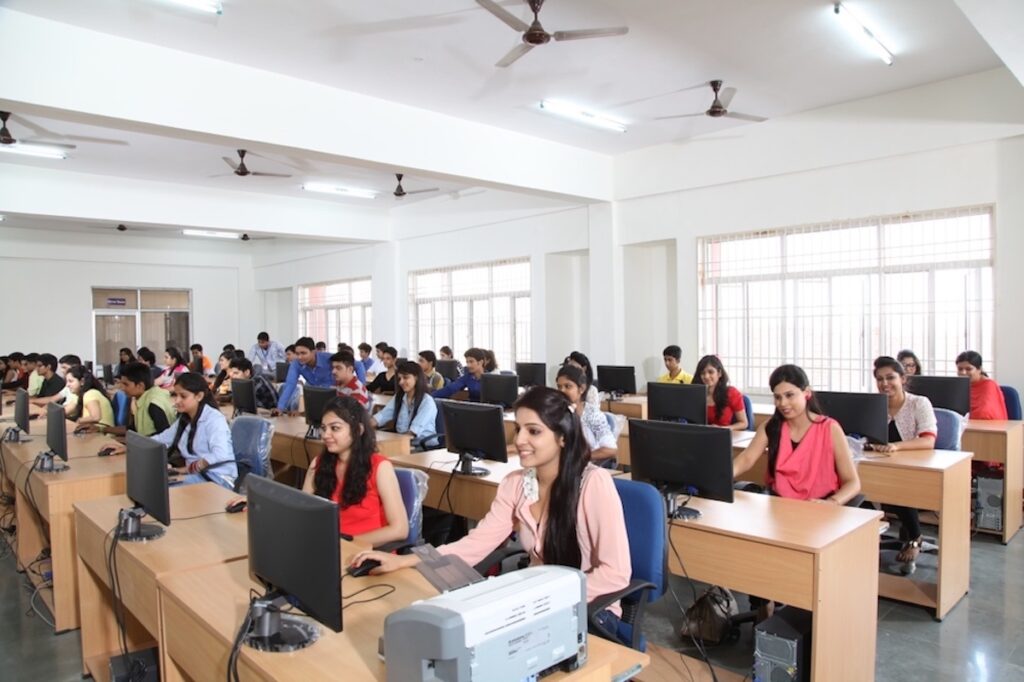
Difference in Admission Process Between BE (Bachelor of Engineering) and BTech (Bachelor of Technology)
Entry Requirements
BE (Bachelor of Engineering)
Eligibility
BE programs often require a strong academic background in science subjects, particularly in mathematics and physics. Some institutes may have specific academic performance criteria or additional qualifications.
Entrance Exams
Admission may involve entrance exams that test theoretical knowledge in engineering fundamentals, often focusing on subjects like mathematics, physics, and chemistry. These exams can be state-specific or national-level.
Common Entrance Exams
JEE Main (in India), GATE (for higher studies), or specific university-level exams.
BTech (Bachelor of Technology)
Eligibility
BTech programs generally have similar eligibility criteria, emphasizing high academic performance in science subjects.
Entrance Exams
BTech admissions also rely on entrance exams but are often more focused on practical applications and problem-solving skills in addition to theoretical knowledge.
Common Entrance Exams
JEE Main (in India), BITSAT (for BITS Pilani), or other institution-specific tests.
Application Process
BE (Bachelor of Engineering)
Application Form
Typically involves filling out an application form either online or offline. Forms may be available on the university’s website or through admission offices.
Documentation
Requires submission of academic records, entrance exam scores, and sometimes, recommendation letters or personal statements.
Interview
Some institutions might conduct interviews or counseling sessions as part of the selection process.
BTech (Bachelor of Technology)
Application Form
The process is similar, with forms available online or offline, depending on the institution.
Documentation
Involves submitting academic records, entrance exam scores, and other required documents like proof of identity, photographs, etc.
Interview/ Counseling
Interviews or counseling sessions might be conducted to assess suitability, but this can vary by institution.
Admission Criteria
BE (Bachelor of Engineering)
Selection Process
Admission is often based on entrance exam scores combined with academic performance. Some institutions may have a merit-based selection process, considering overall performance.
Cut-Offs
Cut-offs for BE programs can be high, depending on the institution and the competitiveness of the entrance exams.
BTech (Bachelor of Technology)
Selection Process
Similarly, BTech admissions are based on entrance exam scores and academic performance. Some institutes might give weightage to practical knowledge or technical skills.
Cut-Offs
BTech cut-offs can vary widely based on the institution’s reputation and the competitiveness of the entrance exams.
Admission Through Management Quota
BE (Bachelor of Engineering)
Management Quota
Some BE programs might have a management quota or direct admission options, where students can secure a seat by paying a higher fee or through institutional recommendations.
BTech (Bachelor of Technology)
Management Quota
BTech programs also may offer seats through management quota or direct admissions. The availability and criteria can differ between institutions.
Duration and Flexibility
BE (Bachelor of Engineering)
Duration
The duration is generally fixed at 4 years, with a focus on theoretical and research aspects.
Flexibility
BE programs may offer some flexibility in choosing electives and specializations, but the core curriculum remains focused on engineering principles.
BTech (Bachelor of Technology)
Duration:
Also typically 4 years, but with a greater emphasis on practical training and industry relevance.
Flexibility
B Tech courses might offer more options for industry projects, internships, and practical exposure, which can influence the course structure and duration slightly.
Choosing the Right Specialization
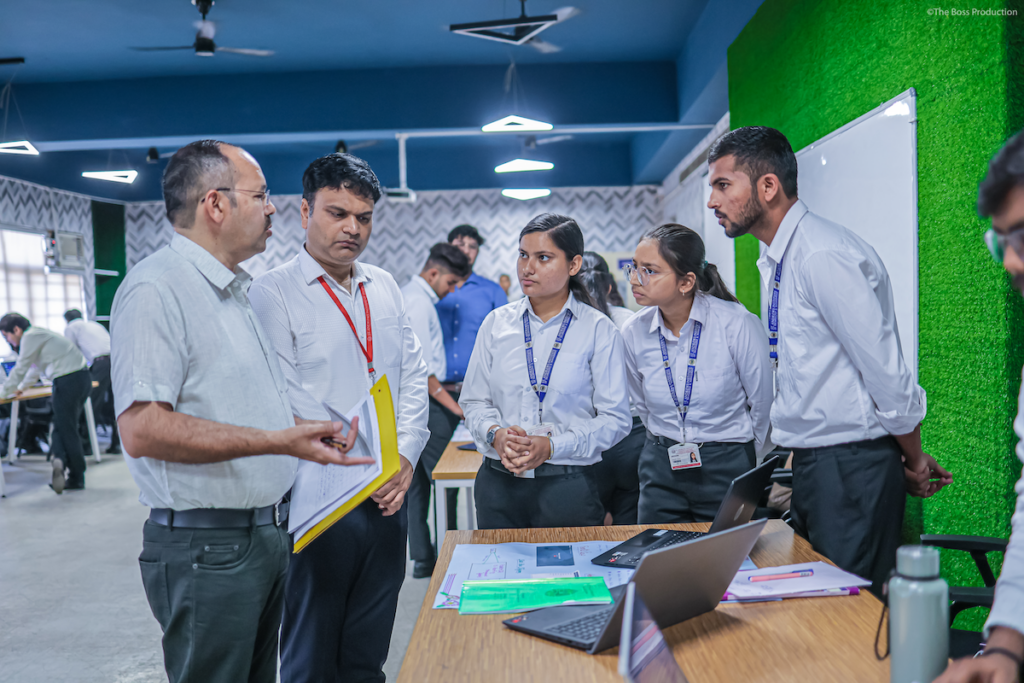
Mechanical Engineering: Career Opportunities and Scope
Overview of Mechanical Engineering
Mechanical engineering is one of the oldest and most diverse engineering disciplines. It involves the design, analysis, manufacturing, and maintenance of mechanical systems. Mechanical engineers work with machinery, tools, engines, and thermal devices, applying principles of physics and materials science to solve engineering problems.
Key Areas of Work
Design and Development
Mechanical engineers create designs for mechanical devices, from small components to large systems like engines or HVAC systems. They use software like CAD (Computer-Aided Design) for designing and testing prototypes.
Manufacturing
In manufacturing, mechanical engineers oversee the production process, ensuring that products are made efficiently and meet quality standards. This involves selecting materials, planning the production process, and supervising the manufacturing line.
Research and Development (R&D)
Mechanical engineers in R&D innovate and improve products, processes, and technologies. They conduct experiments, analyze data, and develop new solutions to engineering challenges.
Maintenance and Safety
These engineers ensure that mechanical systems operate safely and efficiently. They perform regular maintenance, troubleshoot issues, and implement safety protocols.
Career Opportunities
Automotive Industry
Mechanical engineers design and develop vehicles, focusing on improving performance, efficiency, and safety. Roles include automotive design engineer, quality control engineer, and manufacturing engineer.
Aerospace Industry
Engineers in this field work on designing, testing, and producing aircraft and spacecraft. Career options include aerospace engineer, propulsion engineer, and flight test engineer.
Energy Sector
Mechanical engineers contribute to the design and operation of power plants, renewable energy systems, and energy-efficient technologies. Jobs include energy systems engineer, HVAC engineer, and wind turbine engineer.
Manufacturing and Production
Engineers in manufacturing optimize production processes, design manufacturing systems, and ensure product quality. Positions include production manager, manufacturing engineer, and quality assurance engineer.
Robotics and Automation
Mechanical engineers design and build robotic systems and automated machinery for various applications, from industrial automation to medical devices. Roles include robotics engineer, automation engineer, and control systems engineer.
Biomedical Engineering
In the biomedical field, mechanical engineers develop medical devices, prosthetics, and diagnostic equipment. Career paths include biomedical engineer, medical device designer, and research scientist.
Consulting and Project Management
Engineers in consulting provide expert advice on mechanical systems and processes, while project managers oversee engineering projects from conception to completion. Jobs include engineering consultant, project manager, and technical advisor.
Scope and Future Prospects
Technological Advancements
The field is evolving with advancements in technology, such as 3D printing, nanotechnology, and artificial intelligence. These innovations open new opportunities for mechanical engineers to develop cutting-edge solutions.
Sustainable Engineering
There is a growing focus on sustainability and green technologies. Mechanical engineers are key players in developing renewable energy systems, energy-efficient devices, and sustainable manufacturing practices.
Global Demand
Mechanical engineers are in demand worldwide, with opportunities in diverse industries. The skills of a mechanical engineer are transferable across various sectors, providing job security and career flexibility.
Research and Academia
Mechanical engineers can pursue careers in academia and research institutions, contributing to scientific advancements and educating future engineers.
Education and Skill Requirements
Educational Path
A bachelor’s degree in mechanical engineering is the standard entry requirement. Advanced positions may require a master’s degree or Ph.D. Specialized certifications and training can enhance career prospects.
Key Skills
Technical Skills
Proficiency in CAD software, understanding of engineering principles, and knowledge of materials science.
Problem-Solving
Ability to analyze complex problems and develop innovative solutions.
Communication
Strong communication skills for collaborating with multidisciplinary teams and conveying technical information.
Project Management
Skills in planning, organizing, and managing engineering projects.
Adaptability
Willingness to learn new technologies and adapt to changing industry demands.
Computer Science Engineering: Job Profiles and Salary Packages
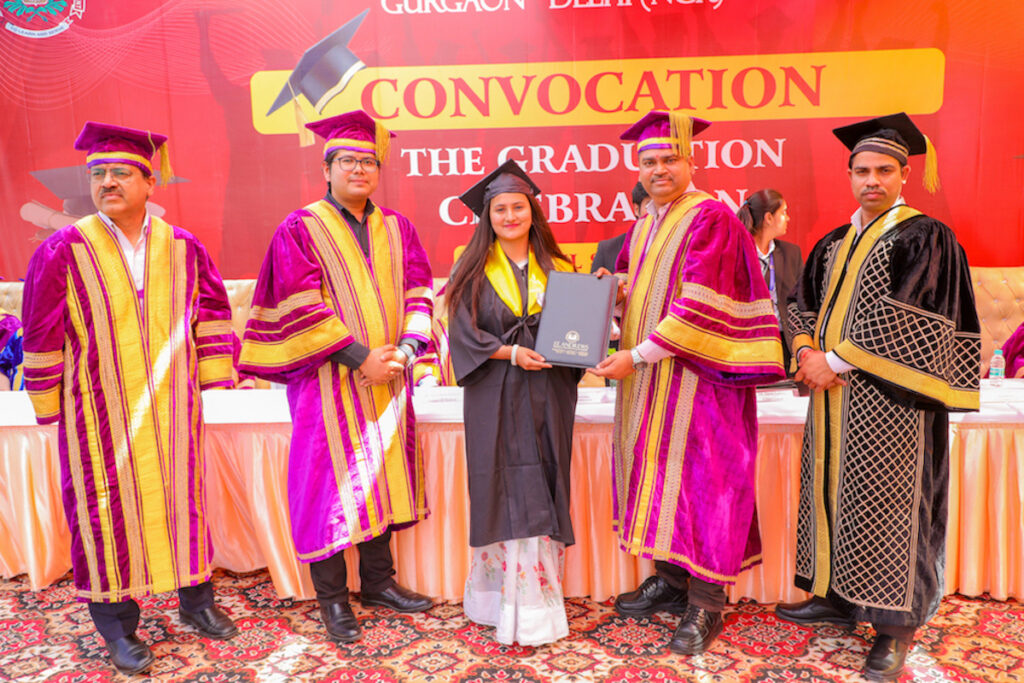
Overview of Computer Science Engineering
Computer Science Engineering (CSE) integrates computer science and engineering principles to develop software and hardware solutions. CSE graduates work in diverse roles involving programming, system design, network management, and data analysis, among others.
Job Profiles
Software Developer/Engineer
Software developers create applications and systems software. They write, test, and debug code to meet user needs and improve performance.
Salary
Entry-level positions typically offer salaries ranging from ₹3.5 to ₹6 LPA (Lakhs per Annum). Experienced developers can earn between ₹10 to ₹20 LPA, and senior positions can exceed ₹30 LPA.
Systems Analyst
Systems analysts evaluate and improve computer systems and processes, ensuring they meet organizational requirements.
Salary
Entry-level systems analysts earn around ₹4 to ₹7 LPA. With experience, salaries can range from ₹8 to ₹15 LPA.
Network Engineer
Network engineers design, implement, and manage computer networks, ensuring they are secure and efficient.
Salary
Starting salaries range from ₹3.5 to ₹6 LPA. Experienced network engineers can earn between ₹8 to ₹18 LPA.
Database Administrator (DBA)
DBAs manage and maintain databases, ensuring data integrity, security, and availability.
Salary
Entry-level DBAs typically earn ₹4 to ₹7 LPA, while experienced DBAs can earn ₹10 to ₹20 LPA.
Data Scientist/Analyst
Data scientists and analysts interpret complex data to help organizations make informed decisions. They use statistical methods and machine learning algorithms.
Salary
Entry-level positions offer ₹6 to ₹10 LPA. Experienced professionals can earn ₹15 to ₹30 LPA or more.
Cybersecurity Analyst
Cybersecurity analysts protect systems and data from cyber threats. They implement security measures and respond to incidents.
Salary
Entry-level salaries range from ₹4 to ₹8 LPA. Experienced analysts can earn ₹12 to ₹25 LPA.
Artificial Intelligence/Machine Learning Engineer
AI/ML engineers develop algorithms and models that enable machines to learn and make decisions.
Salary
Entry-level positions offer ₹6 to ₹12 LPA. With experience, salaries can range from ₹15 to ₹35 LPA.
Cloud Solutions Architect
Cloud architects design and manage cloud computing strategies, ensuring scalability and efficiency.
Salary
Entry-level positions typically offer ₹6 to ₹10 LPA. Experienced cloud architects can earn ₹15 to ₹30 LPA or more.
Web Developer
Web developers build and maintain websites and web applications, focusing on front-end and back-end development.
Salary
Entry-level web developers earn ₹3 to ₹6 LPA. Experienced developers can earn between ₹8 to ₹18 LPA.
Mobile App Developer
Mobile app developers create applications for smartphones and tablets, ensuring functionality across different platforms.
Salary
Entry-level salaries range from ₹4 to ₹7 LPA. Experienced developers can earn ₹10 to ₹20 LPA.
Salary Packages
Salaries in the CSE field can vary widely based on factors such as the industry, job location, level of experience, and the specific skills of the professional.
Entry-Level
Fresh graduates can expect starting salaries ranging from ₹3.5 to ₹7 LPA, depending on the job profile and company.
Mid-Level
Professionals with 3-5 years of experience typically earn between ₹8 to ₹15 LPA.
Senior-Level
Experienced professionals and managers with over 5-10 years of experience can command salaries ranging from ₹20 to ₹40 LPA or more.
Factors Influencing Salaries
Industry
Salaries can vary significantly between industries, with finance, technology, and consulting typically offering higher pay.
Location
Job location plays a crucial role, with metropolitan cities like Bangalore, Mumbai, and Delhi offering higher salaries compared to smaller cities.
Skills and Specializations
Professionals with expertise in emerging technologies like AI, ML, and cybersecurity often command higher salaries.
Company
Multinational corporations (MNCs) and top-tier tech companies usually offer more competitive salaries compared to smaller firms.
Top Engineering Colleges in India
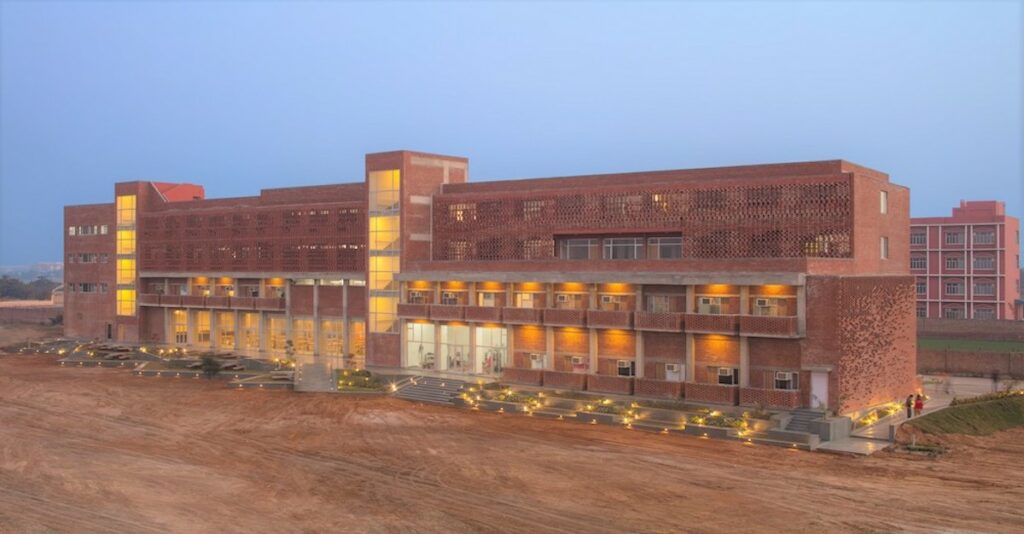
Top NIRF ranked Colleges for Computer Science
The National Institutional Ranking Framework (NIRF) ranks colleges and universities in India based on various parameters like teaching, learning, research, professional practice, graduation outcomes, outreach, and inclusivity.
Here are some of the top NIRF-ranked colleges for Computer Science in India:
Indian Institute of Technology (IIT) Madras:
Location
Chennai, Tamil Nadu
Highlights
Consistently ranked as the top engineering institute in India.
Offers cutting-edge research facilities and a robust curriculum in Computer Science.
Strong industry connections leading to excellent placement opportunities.
Indian Institute of Technology (IIT) Delhi
Location
New Delhi, Delhi
Highlights
Known for its rigorous academic environment and innovative research.
Offers a comprehensive Computer Science program with specializations in various emerging fields.
Excellent placement records with top tech companies recruiting heavily from the campus.
Indian Institute of Technology (IIT) Bombay;
Location
Mumbai, Maharashtra
Highlights
Renowned for its state-of-the-art research facilities and experienced faculty.
Offers diverse courses and specializations in Computer Science.
High placement rates with many students securing positions in leading global tech firms.
Indian Institute of Technology (IIT) Kanpur
Location
Kanpur, Uttar Pradesh
Highlights
Offers a robust Computer Science program with a strong emphasis on research and development.
Known for its innovative teaching methods and comprehensive curriculum.
Excellent placement opportunities with high average salary packages.
Indian Institute of Technology (IIT) Kharagpur:
Location
Kharagpur, West Bengal
Highlights
One of the oldest IITs, known for its extensive research contributions in Computer Science.
Offers a wide range of courses and research opportunities in various fields of Computer Science.
Strong placement cell with high employment rates for graduates.
Indian Institute of Technology (IIT) Roorkee
Location
Roorkee, Uttarakhand
Highlights
Offers a well-rounded Computer Science program with a focus on both theoretical and practical aspects.
Known for its strong alumni network and industry collaborations.
High placement rates with many students securing jobs in top tech companies.
Top Government Colleges for Mechanical Engineering
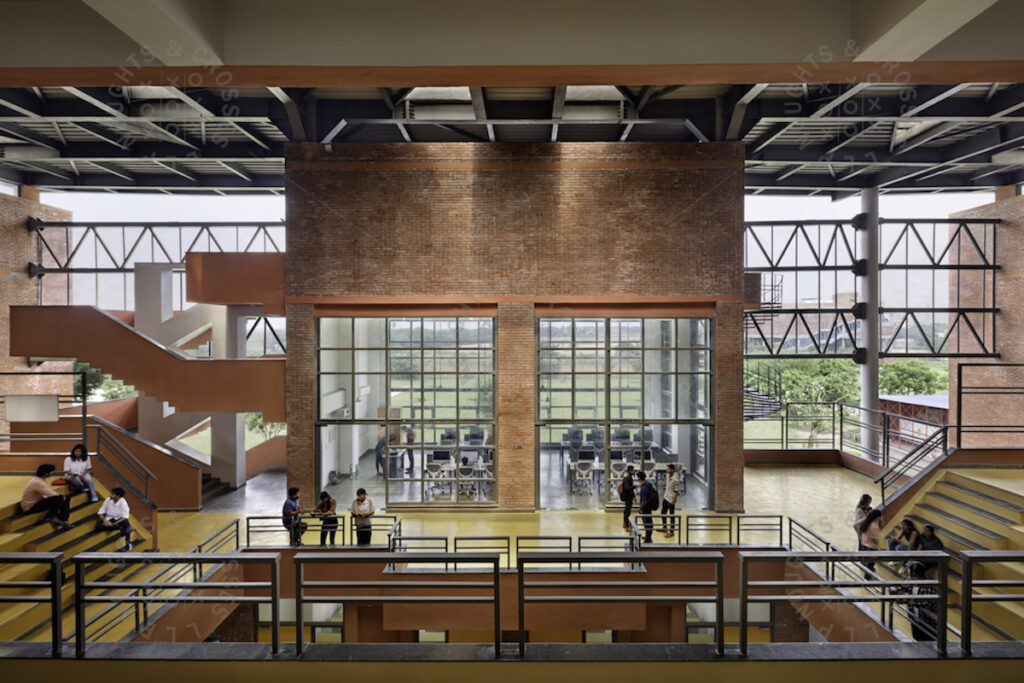
Mechanical Engineering is one of the oldest and most versatile branches of engineering, focusing on the design, analysis, manufacturing, and maintenance of mechanical systems. India has several prestigious government colleges that offer top-notch Mechanical Engineering programs.
Here are some of the top government colleges for Mechanical Engineering in India:
Indian Institute of Technology (IIT) Madras
Location
Chennai, Tamil Nadu
Highlights
Known for its rigorous academic curriculum and cutting-edge research facilities.
Offers various specializations in Mechanical Engineering, including robotics, thermodynamics, and fluid mechanics.
Strong industry connections and excellent placement records.
Indian Institute of Technology (IIT) Bombay:
Location
Mumbai, Maharashtra
Highlights
Offers a comprehensive Mechanical Engineering program with a focus on research and development.
Known for its world-class faculty and state-of-the-art laboratories.
High placement rates with top companies recruiting from campus.
Indian Institute of Technology (IIT) Delhi:
Location
New Delhi, Delhi
Highlights
Offers a robust curriculum in Mechanical Engineering with opportunities for interdisciplinary research.
Known for its innovative teaching methods and extensive research facilities.
Excellent placement opportunities with many graduates securing high-paying jobs.
Indian Institute of Technology (IIT) Kanpur:
Location
Kanpur, Uttar Pradesh
Highlights
Known for its strong focus on research and practical applications in Mechanical Engineering.
Offers various specializations and elective courses in emerging fields.
Strong placement cell with high employment rates for graduates.
Indian Institute of Technology (IIT) Kharagpur
Location
Kharagpur, West Bengal
Highlights
Offers a diverse range of courses and research opportunities in Mechanical Engineering.
Known for its extensive research contributions and experienced faculty.
High placement rates with many students securing positions in leading global firms.
Top Private Colleges for BTech
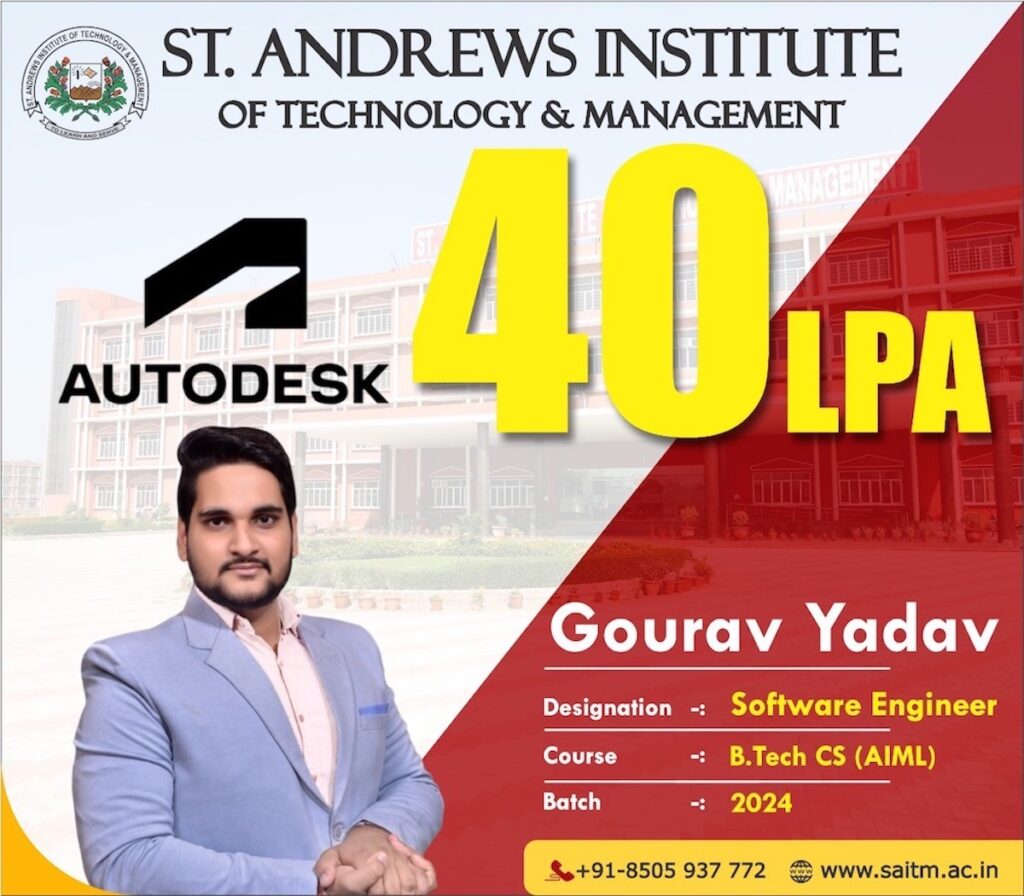
Private engineering colleges in India offer high-quality education, state-of-the-art facilities, and excellent placement opportunities. These institutions often have modern infrastructure, experienced faculty, and strong industry connections, making them a popular choice for students pursuing a BTech degree.
Here are some of the top private colleges for BTech in India:
St. Andrew’s Institute of Technology and management
Location
Gurgaon
Highlights
Offers diverse BTech programs including Information Technology, Mechanical, and Electrical Engineering.
Known for its academic excellence and strong placement records.
Modern campus with advanced research facilities.
Active industry collaborations for internships and projects.
Thapar Institute of Engineering and Technology, Patiala
Location
Patiala, Punjab
Highlights
Offers a comprehensive BTech curriculum with various specializations.
Known for its strong focus on research and innovation.
Excellent placement records with many graduates securing positions in leading companies.
Collaboration with international universities for student exchange programs.
PES University, Bangalore
Location
Bangalore, Karnataka
Highlights
Offers comprehensive BTech programs with a focus on research and development.
Known for its state-of-the-art infrastructure and experienced faculty.
High placement rates with many students securing positions in top tech firms.
Active industry collaborations for internships and projects.
Siksha ‘O’ Anusandhan (SOA) University, Bhubaneswar
Location
Bhubaneswar, Odisha
Highlights
Offers a wide range of BTech specializations.
Known for its focus on research and innovation in engineering education.
Strong placement records with numerous companies recruiting from campus.
Modern infrastructure and well-equipped laboratories.
Kalinga Institute of Industrial Technology (KIIT), Bhubaneswar
Location
Bhubaneswar, Odisha
Highlights
Offers diverse BTech programs including Information Technology, Mechanical, and Electrical Engineering.
Known for its academic excellence and strong placement records.
Modern campus with advanced research facilities.
Collaboration with international universities for research and student exchange.
Jaypee Institute of Information Technology (JIIT), Noida
Location
Noida, Uttar Pradesh
Highlights
Offers a variety of BTech programs with a focus on innovation and research.
Known for its experienced faculty and modern infrastructure.
High placement rates with graduates securing positions in leading companies.
Active industry collaborations for research and internships.
Admission Process for BE and BTech
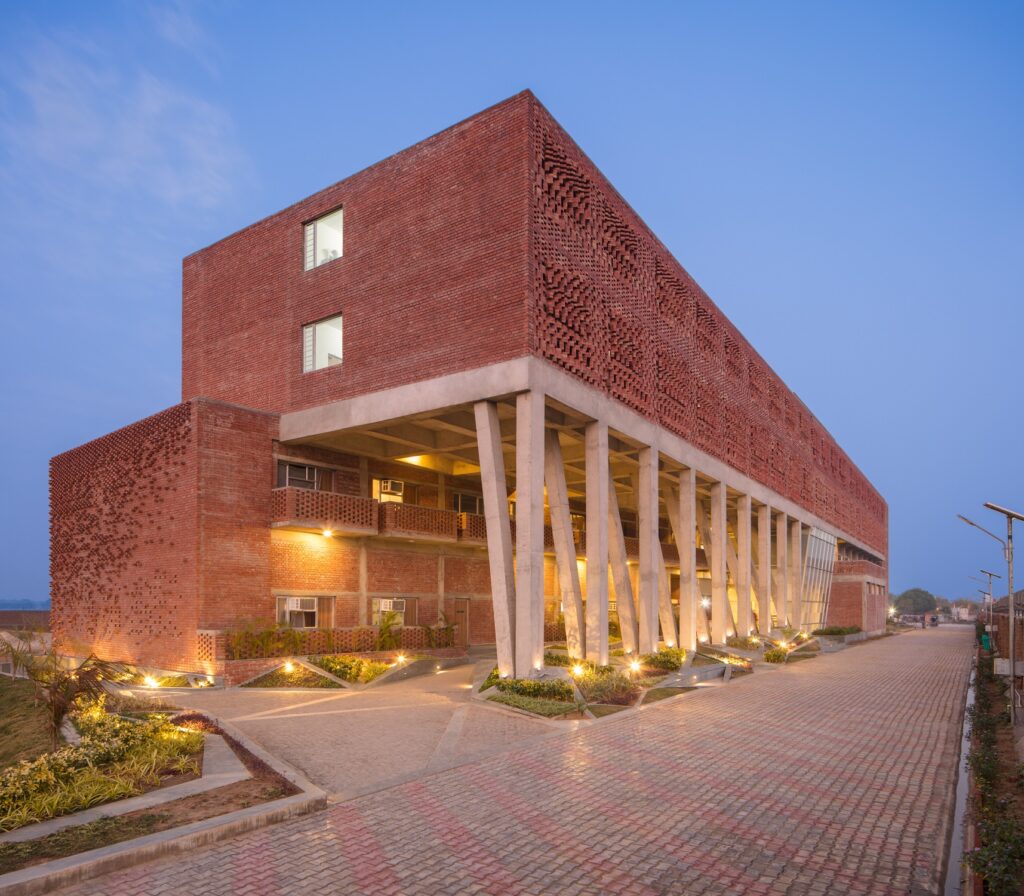
The admission process for Bachelor of Engineering (BE) and Bachelor of Technology (BTech) degrees typically involves several stages, including entrance exams, counseling sessions, and document verification.
Here’s a detailed overview of the process:
Entrance Exams
National Level Exams
JEE Main
Conducted by the National Testing Agency (NTA), JEE Main is the most common entrance exam for BE and BTech programs. It is a gateway to several prestigious engineering colleges, including NITs, IIITs, and other centrally funded institutions.
JEE Advanced
Only the top performers in JEE Main are eligible to appear for JEE Advanced, which is required for admission to the Indian Institutes of Technology (IITs).
State Level Exams
MHT-CET (Maharashtra)
For engineering colleges in Maharashtra.
KCET (Karnataka)
For engineering colleges in Karnataka.
WBJEE (West Bengal)
For engineering colleges in West Bengal.
TNEA (Tamil Nadu)
Admission based on 12th standard marks rather than a separate entrance exam.
University Level Exams
BITSAT (BITS Pilani)
For admission to Birla Institute of Technology and Science.
VITEEE (VIT Vellore)
For admission to Vellore Institute of Technology.
Application Process;
Application Form
Candidates must fill out the application form for the respective entrance exams, providing personal and academic details, and paying the application fee.
Admit Card
Upon successful registration, candidates receive admit cards for the entrance exams.
Entrance Exam
Preparation
Candidates prepare for the exams, focusing on subjects like Mathematics, Physics, and Chemistry.
Exam Day
Candidates appear for the entrance exam on the scheduled date.
Results and Rank Lists
Announcement of Results
The official websites of the respective exams announce the outcomes.
Rank Lists
Based on the scores, rank lists are published, which play a crucial role in the subsequent counseling process.
Counseling Process
Centralized Counseling
JOSAA
The Joint Seat Allocation Authority (JOSAA) conducts counseling for admission to IITs, NITs, IIITs, and other GFTIs based on JEE Main and JEE Advanced ranks.
State Counseling
Each state conducts its own counseling process for admission to state engineering colleges based on the respective state entrance exam ranks or 12th standard marks.
University Counseling
Universities like BITS, VIT, SRM, etc., conduct their own counseling sessions based on their entrance exam ranks.
Choice Filling and Seat Allotment
Choice Filling
Candidates fill in their preferences for colleges and branches.
Seat Allotment
Seats are allotted based on rank, preferences, and availability. Candidates must confirm their acceptance by paying the admission fee.
Document Verification
Required Documents
Candidates must submit their original documents for verification, which typically include:
Entrance exam scorecard and admit card.
10th and 12th standard mark sheets and certificates.
Category certificate (if applicable).
Domicile certificate (if applicable).
Passport-sized photographs.
Career Scope after BE and BTech
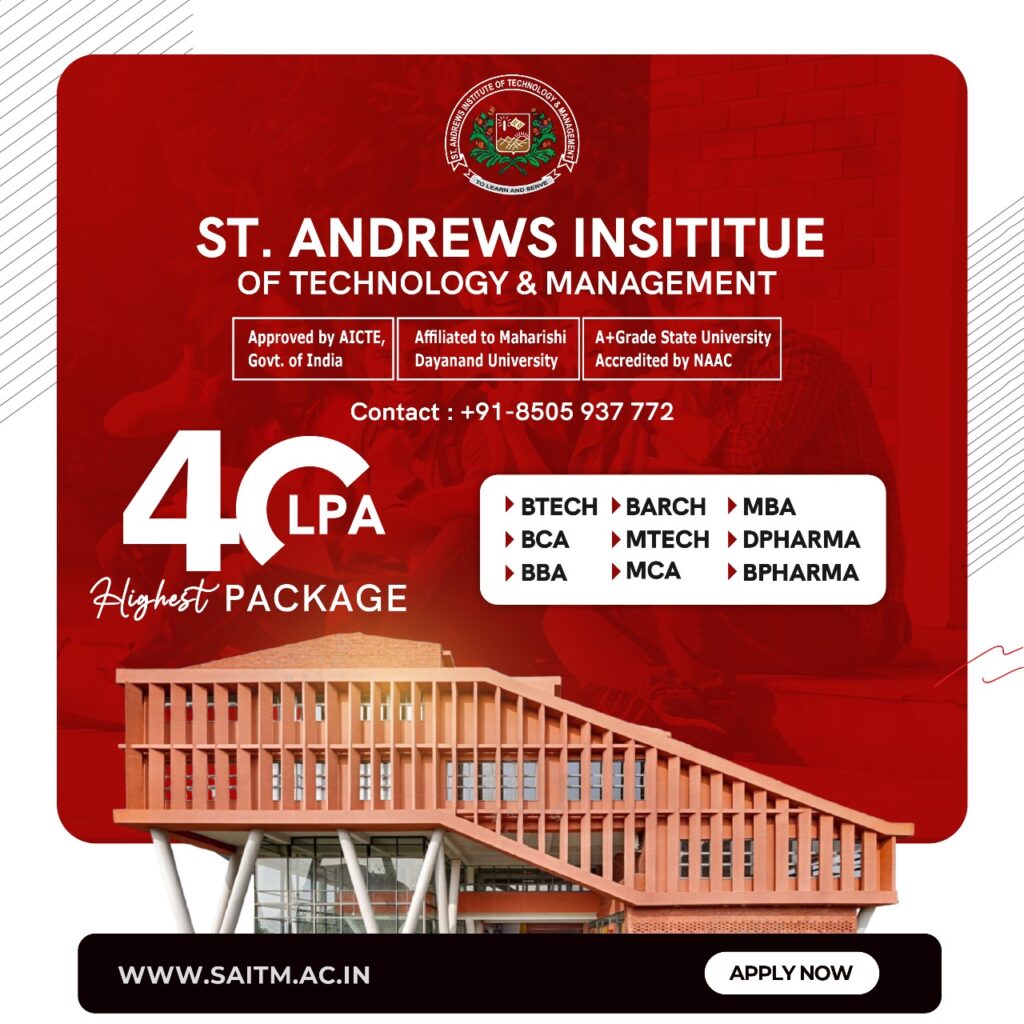
Pursuing a Bachelor of Engineering (BE) or a Bachelor of Technology (BTech) opens up a wide array of career opportunities in various sectors. These degrees equip students with technical knowledge, problem-solving skills, and practical experience, making them valuable assets in the job market.
Here is an in-depth look at the career scope after completing BE and BTech:
Core Engineering Jobs
Graduates can work in roles directly related to their engineering discipline. Some examples include:
Mechanical Engineers
Work in industries such as automotive, aerospace, manufacturing, and energy, focusing on designing, developing, and maintaining mechanical systems.
Civil Engineers
Engage in construction, infrastructure development, urban planning, and project management.
Electrical Engineers
Find opportunities in power generation, electronics, telecommunications, and robotics.
Computer Science Engineers
Specialize in software development, cybersecurity, data science, artificial intelligence, and IT consulting.
IT and Software Development
The IT sector is one of the largest employers of BE/BTech graduates, especially those from Computer Science, Information Technology, and Electronics branches.
Job roles include:
Software Developer/Engineer
System Analyst
Database Administrator
Network Engineer
Cybersecurity Analyst
Data Scientist
Research and Development (R&D)
Graduates interested in innovation and technology advancements can pursue careers in R&D.
This can be within corporate settings, research institutions, or higher education:
Research Scientist
Development Engineer
Technical Consultant
Research Fellow (after pursuing higher studies)
Management Roles
With additional qualifications like an MBA, BE/BTech graduates can move into management roles, combining their technical expertise with business acumen:
Project Manager
Product Manager
Operations Manager
Technical Sales Engineer
Public Sector and Government Jobs
There are numerous opportunities in public sector enterprises, government departments, and ministries for engineering graduates:
Indian Engineering Services (IES)
Public Sector Undertakings (PSUs) like BHEL, ONGC, NTPC, and ISRO
Defense Services (Army, Navy, Air Force)
Civil Services (IAS, IPS)
Entrepreneurship
Engineering graduates with innovative ideas and entrepreneurial spirit can start their own ventures:
Tech Startups
Manufacturing Units
Consulting Firms
Higher Education and Specialization
Many graduates opt for higher studies to gain specialized knowledge and enhance career prospects:
MTech/MS in specialized fields
MBA for management roles
PhD for academic and research careers
Emerging Technologies
There is a growing demand for engineers in emerging technology fields:
Artificial Intelligence (AI) and Machine Learning (ML)
Internet of Things (IoT)
Blockchain Technology
Renewable Energy
Biotechnology
Consulting and Advisory Services
Graduates can work as consultants, providing expertise to organizations in various domains:
IT Consulting
Management Consulting
Engineering Consultancy
Teaching and Academia
For those interested in education, teaching at engineering colleges or universities is a viable career path:
Lecturer/Assistant Professor
Educational Content Developer
Academic Researcher
FAQs
Which is better, BTech or BE?
Both BTech and BE are esteemed engineering degrees with similar curricula and career prospects. The choice depends on individual preferences and career goals. BTech focuses more on practical and application-oriented learning, while BE emphasizes theoretical knowledge. Ultimately, both degrees offer excellent opportunities in engineering fields.
Is there any salary difference between BTech and BE?
Generally, there is no significant salary difference between BTech and BE graduates. Salaries depend more on the individual’s skills, experience, and the reputation of the institution they graduated from. Both degrees are highly valued in the job market, offering similar financial prospects in engineering careers.
Do BE and BTech have same value?
Yes, BE and BTech degrees generally hold the same value in terms of education and career opportunities. Both are recognized as equivalent in the job market, providing similar prospects in engineering fields. The key differences lie in the curriculum focus, with BE being more theoretical and BTech more practical.
Is BTech also called BE?
No, BTech and BE are not the same, though they are often considered equivalent. BTech (Bachelor of Technology) is more practical-oriented, focusing on technical skills, while BE (Bachelor of Engineering) is typically more theoretical and conceptual.
What is a BTech degree?
A BTech (Bachelor of Technology) degree is an undergraduate program focusing on practical and technical skills in various engineering and technology fields. It emphasizes hands-on learning and industry-relevant knowledge, preparing students for careers in their chosen disciplines.
What is the meaning of BTech?
BTech stands for Bachelor of Technology. It is an undergraduate degree that focuses on technical and engineering disciplines, offering specialized knowledge and practical skills in fields like computer science, mechanical engineering, and electrical engineering.
What is the job of BTech?
A BTech graduate typically works in technical or engineering roles, such as software development, system design, project management, or engineering consultancy. They apply their specialized knowledge to solve complex problems and contribute to technology and infrastructure projects.

